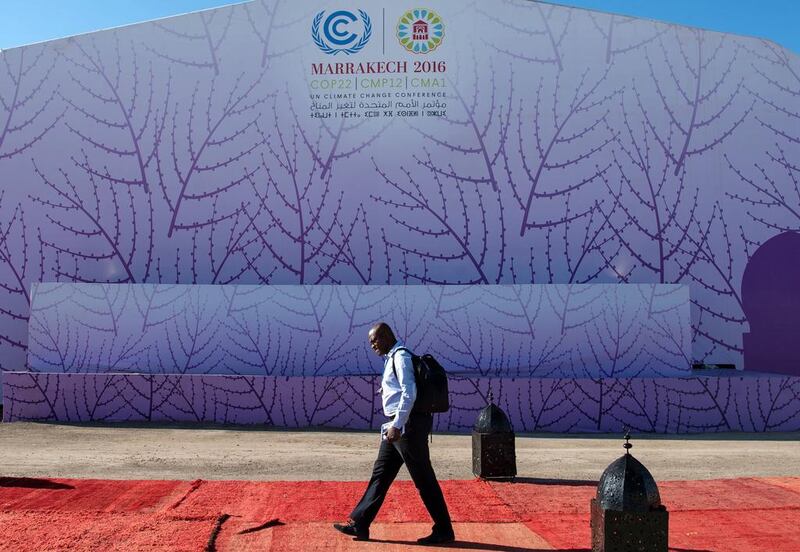Climate-change conference in Marrakech looks at ways that countries, enterprise and financiers can work to cut emissions
Closer collaboration between governments, businesses and financial institutions on renewable energy development will be a major feature of the global climate change conference that kicked off this week in Marrakech, Morocco.
Leading up to this year’s Cop22, at the start of this month the plan to reduce carbon emissions to help prevent global temperatures from rising by more than 2°C entered into action.
While the government-set targets will help to get the ball rolling, businesses and financiers will in the future take on a greater role to meet the goals. Investments in renewables, which has already grown rapidly to reach a record level of US$286 billion last year, will need to double before the end of this decade and grow further, to more than three times current levels in the 2020s, to support the climate change goals agreed at the Cop in Paris last year, according to Adnan Amin, the director general of the Abu Dhabi-based International Renewable Energy Agency (Irena).
Claudio Palmieri, the chief executive of Dubai’s CLS Energy Consultants, said that changing economics had been the deciding factor behind speeding up a renewable energy roll-out. “Cop22 is important to help get the momentum going but in the end it is down to economics to scale the industry up,” he said. “As the renewable energy continues to develop and prices continue to drop we will see a growing number of projects that will be created simply because they make economically a lot of sense.”
Ivano Iannelli, the chief executive of the centre of excellence Dubai Carbon, said that a critical area that must be addressed is the mobilisation of finance, technology and capacity-building support before and after 2020. “The world’s $7.2 trillion green economy proves that development does not have to be at the expense of the environment,” he said.
Morocco announced at the Paris meeting that it would increase its renewable energy target from 42 per cent by 2020 to 52 per cent by 2030. The solar power from the North African country could supply Europe, which would in turn create revenue and jobs for Moroccans.
“Will Europe actually agree to buy [electricity produced from renewable energy] or will they prefer to produce it themselves even though Morocco is sunnier?
“These are the type of questions about commitment to implementation of climate change mitigation that will be a test of the political will of the developed countries that caused climate change,” said Jonathan Walters, a former director of the World Bank.
Morocco will be where the “rubber hits the road” in terms of buy-in from businesses, according to Aimee Barnes, a partner at US-based Allotrope Partners, a shareholder in the Dubai environment consultancy and project development company V4 Advisors. “Businesses who do not start to step up to track their emissions and take actions to reduce them will increasingly be in the minority,” she said.
“There is a growing realisation that action is needed by everyone, from every sector and every country and city – not just from country-level governments.”
Gus Schellekens, a partner at Ernst & Young, said that addressing the use of coal – including its health and carbon dioxide emissions effect – as well as accelerating the emissions-monitoring regime, mobilising financial support to developing countries to help with their plans, are where the most opportunity exists.
“A long-standing issue is that pledges are made and never materialise,” he said.
lgraves@thenational.ae





